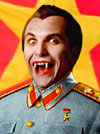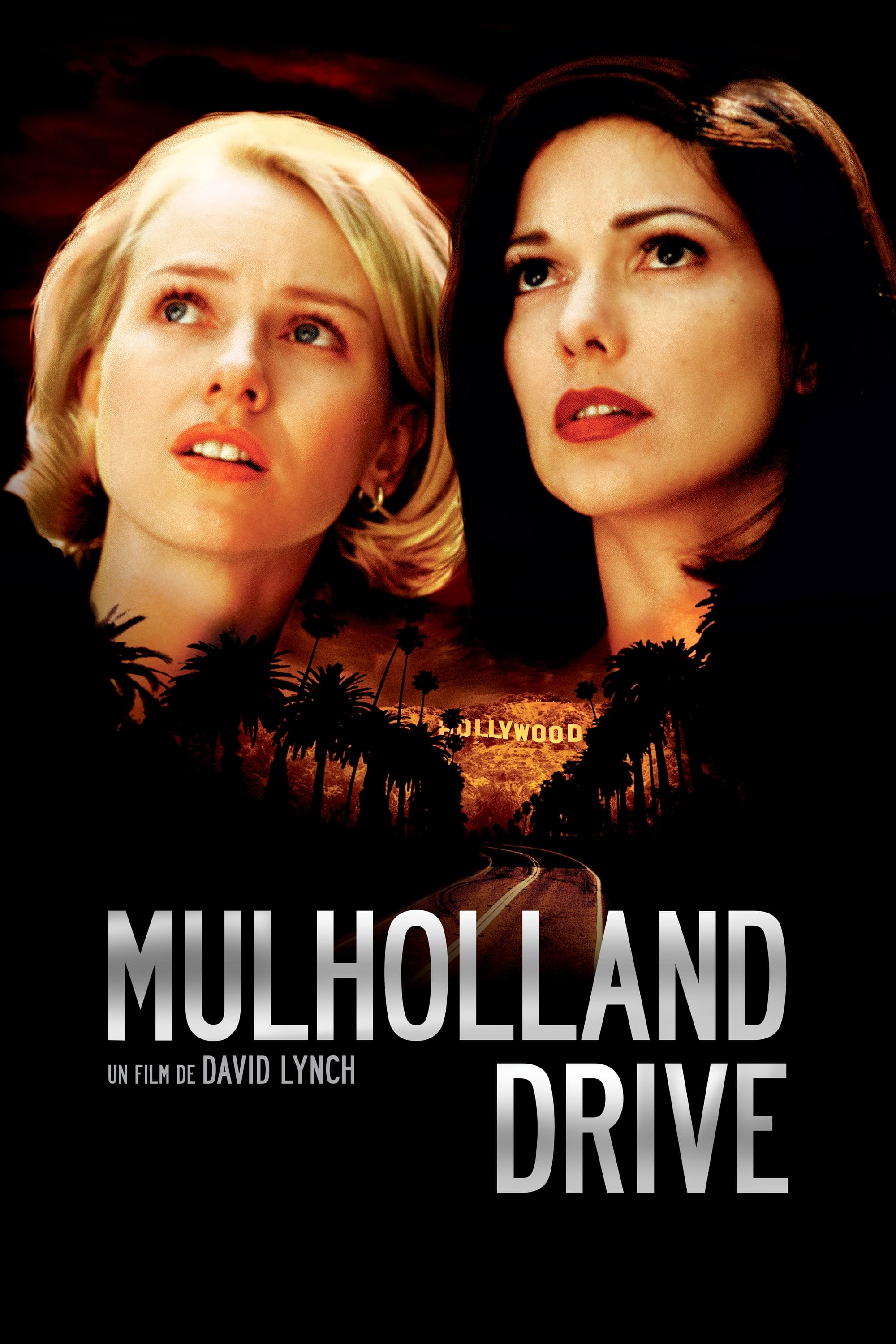|
Mulholland Drive Film review by Thomas M. Sipos |
|
MENU Books Horror Film Festivals and Awards
Pursuits
Blogs Horror Film Festivals and Awards
Other
|
Mulholland Drive (2001, dir/scp: David Lynch; cast: Naomi Watts, Laura Harring)
Is it a horror film? Like all things in the Lynchian universe, the answer is an emphatic: yes and no. What's the story about? The more proper question is: Is there a story? Again, there is and there isn't. Mulholland Drive is not so much a story as a series of events, veering off into divergent tangents, surrealistically (but only partially) interconnected, sometimes returning on a Mobius strip in new form, sometimes dropped and forgotten, or lingering on a subconscious level. Welcome to Lynch's dark and beautiful nightmare. You either love it or hate it. Like Lynch's Blue Velvet, Mulholland Drive opens in a hyper-idealized America. A perky all-American girl (from Canada) with stars in her eyes wins a jitterbug contest -- 1950s kitsch in a contemporary America permeated with anachronistic sensibilities. She arrives in Los Angeles, seen resplendently through her naive eyes. That's Betty (from Archie comics?) played by Naomi Watts. In Mulholland Drive, Betty's brunette foil is Rita (Laura Harring). Rita hails from L.A. noir. A dark femme fatale riding in the back seat of a car, moving languorously, hypnotically, down Mulholland Drive. Rita's mysterious identity is compounded by her attempted murder. Then a strikingly brutal (and seemingly arbitrary) incident drastically alters the course of events. As in a nightmare. Lynch is one of the few filmmakers who can pull off such seeming arbitrariness. His films' narrative subtext, cinematography, art direction, and music create a surreal interconnectedness that fuse events together despite drastic and seemingly arbitrary plot detours.
I don't want to reveal too much. Mulholland Drive should not be spoiled for those who've yet to see it. After driving down Mulholland Drive, Rita has amnesia. She wanders into Betty's house. Betty -- who came to Hollywood to be star -- takes Rita under her wing. Like Nancy Drew, Betty is an innocent drawn to adventure. Innocent, because no modern day Nancy Drew would last long in the dark and violent world Betty is set to enter (and Rita, re-enter). This is a common Lynchian theme: The innocent who is drawn to dark strangers living corrupt lives under the Disneyfied surface of Americana. (It is tempting to see Lynch, raised in Montana, as that innocent.) In Mulholland Drive, Lynch (through Betty) pokes underneath Hollywood's glitter. Naturally, we find lies, corruption, power plays, egos, exploitation. The pain and heartbreak beneath Hollywood glitter is an old target, extending back to the similarly titled Sunset Boulevard. Yet remarkably, Lynch breathes starling new vigor into this well-trod tale. The Hollywood power plays involve a dwarf in a red room. And a cowboy, and much else that remains unexplained. That is what Hollywood feels like for many. Actors wondering why they were not chosen. Directors wondering why they were bumped off a project, or why a project was canceled. Oh yes, Rita has a blue key. And there is a blue box, reminiscent of Hellraiser's puzzle box. Mulholland Drive's first hour can best be described as a noir mystery with Lynchian overtones. That's confusing enough. But two hours inot the film Rita finds the blue box, then during the last half hour things take a metaphysical turn. Remember when in Twin Peaks, Josie's form emerges from the wall at the Great Northern? And it's never explained. No, that's not what happens with Rita's blue box, but it's in the same territory. Lynch claims to be fascinated by furniture. And by music, and much else. His films are less linear stories than surreal journeys through his dark fascinations. The latter half of the film journeys deeper into those fascinations. Mulholland Drive was originally a pilot for an ABC TV series that was never picked up. It was finished (as a feature film) with French money. That's one explanation for the sudden turn of events midway through the film. But once again, Lynch makes it work. There is so much more in this film, but I won't spoil it by recounting the events.
Do see this film alone, or at worst, with a mature audience. I saw it at an IFP/ West screening at the L.A. Film School. No doubt, the crowd imagined itself hip, trendy, sophisticated. Yet many laughed at the most inappropriate times. They laughed at Betty's idealized entry into L.A., upsetting the scene's fine balance. (As in many horror films, Lynch's films establish a delicate tension between unease and humor -- a tension whose beauty and poignancy and unease can easily be weakened and destroyed by inappropriate laughs.) Yes, Betty is naive, but we are meant to empathize with her vision -- not laugh at her. Remarkably, the IFP crowd also guffawed at a lesbian scene. I thought I was surrounded by a crowd of Beavis and Buttheads. Mulholland Drive was nominated for, but did not make, the Preliminary Ballot of the Horror Writers Association's Bram Stoker Awards. That is no shame on Lynch. It does disgrace and cheapen the Stokers. David Lynch has spent three years creating a website. Fans will want to see: DavidLynch.com. Review copyright by Thomas M. Sipos
|
"Communist Vampires" and "CommunistVampires.com" trademarks are currently unregistered, but pending registration upon need for protection against improper use. The idea of marketing these terms as a commodity is a protected idea under the Lanham Act. 15 U.S.C. s 1114(1) (1994) (defining a trademark infringement claim when the plaintiff has a registered mark); 15 U.S.C. s 1125(a) (1994) (defining an action for unfair competition in the context of trademark infringement when the plaintiff holds an unregistered mark).

 David
Lynch
is the most brilliantly innovative and interesting filmmaker working today,
and
David
Lynch
is the most brilliantly innovative and interesting filmmaker working today,
and 